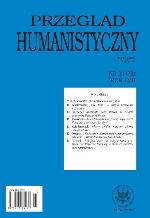Skansen. Przemiany funkcji sztokholmskiego parku etnograficznego w kontekstach historii społecznej Szwecji nowoczesnej
Skansen. Transformations of the Functions of the Stockholm Ethnographic Park in the Contexts of Social History of Modern Sweden
Author(s): Łukasz BukowieckiSubject(s): Cultural Essay, Political Essay, Societal Essay
Published by: Wydawnictwa Uniwersytetu Warszawskiego
Summary/Abstract: The article describes the social and political conditions and methodological assumptions, which accompanied the establishment of the first open-air ethnographic museum on the Djurgården island in Stockholm, initiated by Arthur Hazelius at the turn of 19 th and 20th century. The article also presents the historical development of this institution. Skansen – as an oasis of countryside and nature in the centre of a metropolis and as “Sweden in miniature” – was for many decades a material manifestation of the myth of rural society, permeating the whole Swedish society. Thereby it became an efficient tool of building modern national identity of Swedes, as a perfect visual basis for an imagined community. Today everyone, regardless of the citizenship indicated in the passport, has a right to experience in Skansen a nostalgia for gammaldags Sverige, the old Sweden. Trans. M. Bucholc
Journal: Przegląd Humanistyczny
- Issue Year: 438/2012
- Issue No: 01
- Page Range: 35-50
- Page Count: 16
- Language: Polish
- Content File-PDF

